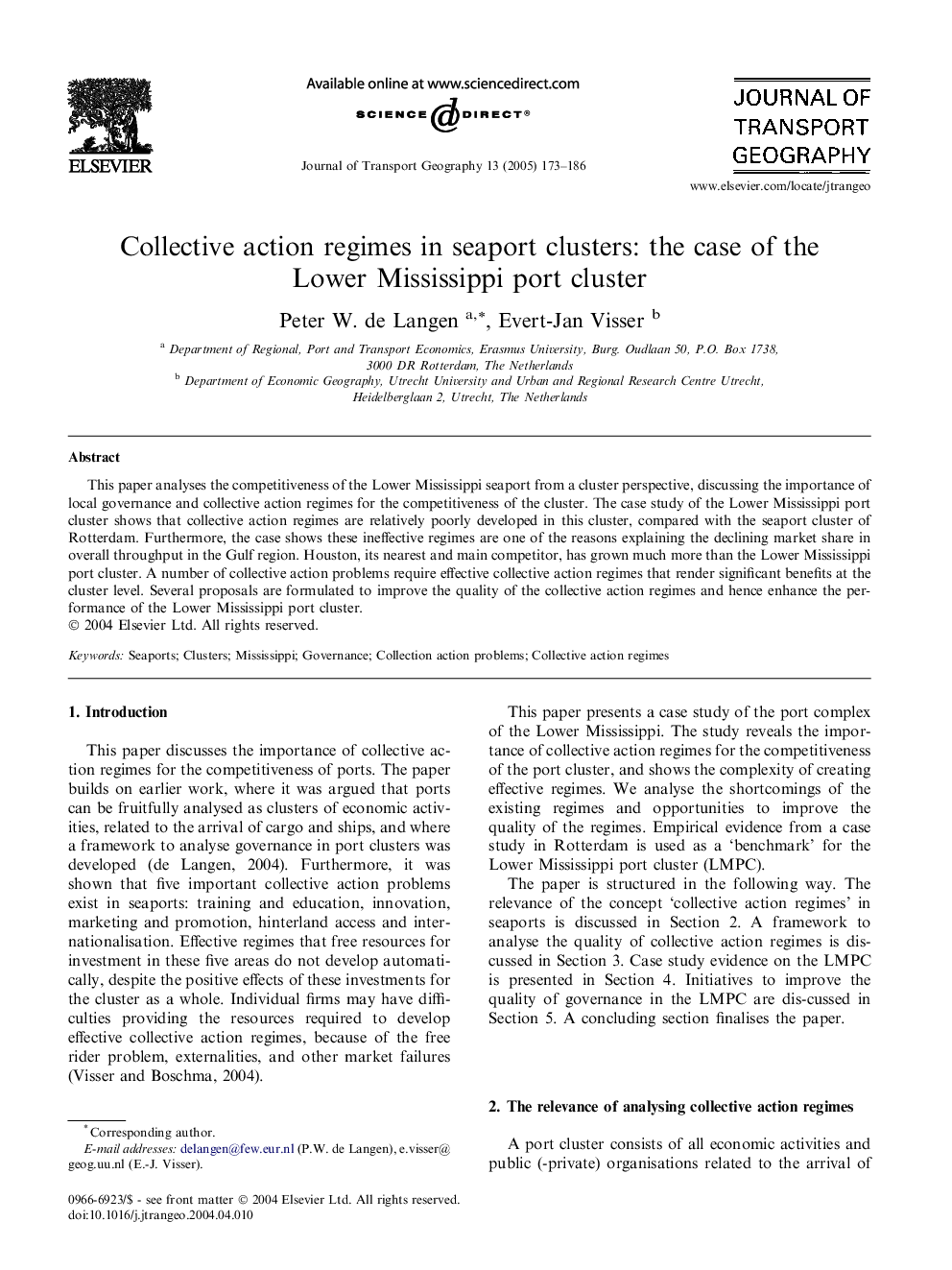| Article ID | Journal | Published Year | Pages | File Type |
|---|---|---|---|---|
| 10506479 | Journal of Transport Geography | 2005 | 14 Pages |
Abstract
This paper analyses the competitiveness of the Lower Mississippi seaport from a cluster perspective, discussing the importance of local governance and collective action regimes for the competitiveness of the cluster. The case study of the Lower Mississippi port cluster shows that collective action regimes are relatively poorly developed in this cluster, compared with the seaport cluster of Rotterdam. Furthermore, the case shows these ineffective regimes are one of the reasons explaining the declining market share in overall throughput in the Gulf region. Houston, its nearest and main competitor, has grown much more than the Lower Mississippi port cluster. A number of collective action problems require effective collective action regimes that render significant benefits at the cluster level. Several proposals are formulated to improve the quality of the collective action regimes and hence enhance the performance of the Lower Mississippi port cluster.
Related Topics
Life Sciences
Environmental Science
Environmental Science (General)
Authors
Peter W. de Langen, Evert-Jan Visser,
